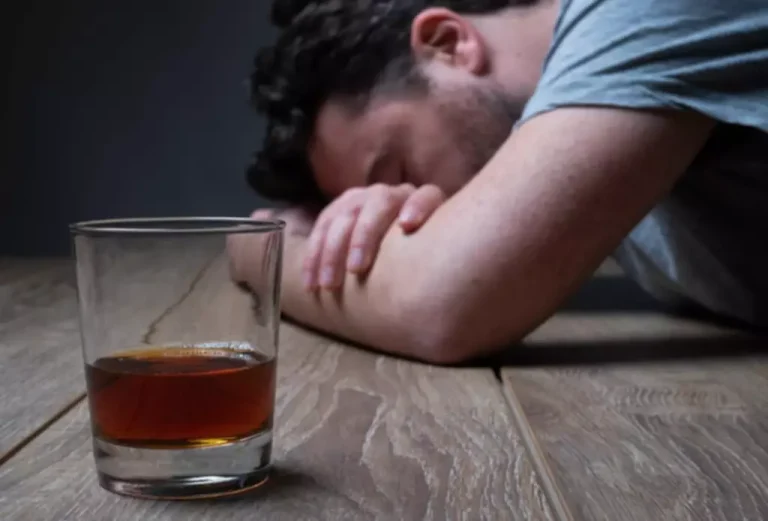
During the early recovery process, it’s common to face challenges such as high stress levels, negative effects of drug withdrawal, difficulty sleeping, and a fractured sense of self. Discover why swimming is beneficial during addiction recovery, promoting physical health and psychological well-being. Discover how exposure therapy treatment can revolutionize opiate addiction recovery. Explore what a drug abuse counselor does, from therapy techniques to ethical standards in the journey to sobriety. While sitting still is often a part of mindfulness meditation when you first start, once you get the hang of it, you can take your practice anywhere, including on a walk outside. If you don’t feel like you can practice mindfulness on your own, try a guided meditation practice.
Benefits of creative expression
- Make it clear that participants do not have to share anything they write, so they’ll feel free to explore potentially surprising emotions.
- Specific programs like Mindfulness-Based Relapse Prevention (MBRP) and Mindfulness-Oriented Recovery Enhancement (MORE) have demonstrated clinical benefits by addressing mechanisms underlying addiction.
- Mindfulness is supported by scientific research that highlights its benefits for mental health, emotional regulation, and overall well-being.
- This is done with your eyes closed, in a seated position or lying down, and starts with a few deep breaths.
She graduated from The University of Maryland with a master’s degree in social work. As a licensed clinician, Cheryl stands ready to diagnose and treat a wide spectrum of mental, behavioral, and personality disorders that sometimes present alongside a substance use disorder. Steeped in the 12-step philosophy and community, Shannon enthusiastically educates clients, especially newcomers in recovery, on the simple model and its transformative ways to a new life in sobriety. He earned a Bachelor’s degree at Lincoln University of Pennsylvania while pursuing his CAC-AD. With strong ties to Victory Christian Church and the 12-step community, Federico shares an amazing personal story of redemption and long-term recovery. With over 32 years in the arena of addiction and sobriety, he uses his vast experience to provide a unique approach to mentorship and guiding our clients toward a supportive lifestyle of recovery.

Start Transforming Your Life Today

To practice mindfulness, you simply pay attention to whatever is happening in the present moment from a place of compassion, curiosity, and nonjudgment. Other benefits of meditation therapy include altering brainwaves, which contribute to improved psychological function and reduced cortisol, the body’s stress hormone. Using mindful breathing exercises can help regulate a racing heart, racing thoughts, and give you space to simply breathe.
Developing comprehensive recovery plans incorporating mindfulness

Joining local or virtual groups offers accountability, encouragement, and the opportunity to learn from others. These findings suggest that incorporating mindfulness techniques can be effective in addiction treatment strategies. These intense urges can feel overwhelming, making it difficult to resist the temptation to use substances. Mindfulness and addiction recovery are deeply connected because mindfulness allows individuals to observe cravings without immediately reacting to them. Mindfulness in recovery helps individuals recognize these patterns and develop greater self-awareness.
The Benefits of Exercise in Addiction Recovery
Mindfulness meditation impacts addiction recovery by initiating changes in brain function and structure that enhance emotional regulation and self-awareness. Regular mindfulness practice strengthens pathways in the prefrontal cortex, which is responsible for cognitive control and planning abilities. This improvement is crucial for individuals managing addiction, as it equips them with the necessary skills to resist impulses and make healthier choices.
Practical Mindfulness Techniques
Discussions about addiction recovery group activities won’t be complete without physical activity sessions. Group-friendly exercises, such as brisk walking, gentle yoga classes, or light aerobics sessions, improve energy levels, reduce stress, and boost endorphins, your body’s natural feel-good chemicals. Activities reduce the risk of relapse by replacing negative habits with positive ones. They offer structured, meaningful experiences that fill the void often left by addiction, promoting a balanced lifestyle. Engaging with support groups and building healthy social connections further fortify this foundation, creating a network of encouragement and accountability.
How does meditation improve self-awareness and emotional resilience during recovery?
Developed by Dr. Jon Kabat-Zinn, MBSR is one of the addiction meditation kundalini most widely used mindfulness-based therapies. It’s an eight-week program that combines mindfulness meditation and yoga to reduce stress and improve psychological well-being. This practice differs from other forms of meditation in its focus on “just sitting” (shikantaza).

Introducing mindfulness into everyday routines can significantly support recovery and overall mental health. Start with simple practices like paying full attention during routine activities such as brushing your teeth, washing dishes, or walking. By focusing on sensory details—like the feel of water, the taste of food, or the sensation of your feet on the ground—you cultivate present-moment drug addiction awareness. Other activities like the body scan meditation, progressive muscle relaxation, and gratitude journaling can be easily incorporated into daily routines to deepen practice.

- It encourages a shift from substance reliance to embracing healthy practices and positive lifestyle changes.
- For example, being mindful throughout the day can be difficult, and it’s often easy to lose focus.
- By incorporating these strategies—establishing routines, leveraging support resources, and addressing challenges—individuals can build a sustainable meditation practice that supports ongoing recovery.
- This renewal of purpose can drive positive behaviors, motivating individuals to remain abstinent.
- These forms of movement meditation foster body awareness and can alleviate physical tension, which may be linked to stress or cravings.
- Yoga combines physical movement with mindfulness, promoting relaxation and mental clarity.
You ground yourself in the present moment and give your mind a chance to choose a healthier response. Consistency is critical; establishing daily rituals helps rebuild trust in oneself, reduces stress, and nurtures a hopeful outlook. Over time, these activities cultivate resilience, purpose, and inner peace, vital for ongoing recovery.